The View from the Hill 26th June 2022

Congratulations to our Devon colleague Richard Tucker and his family for keeping their cool last week, when descended upon by the Prime Minister and his entourage at short notice, in full campaigning mode. By the time this hits the doormat the by-election will be history, but it was a masterstroke catching the PM with his snout in the trough, something many of his colleagues are renowned for, especially the ones who receive gongs for huge donations to his party. But enough of sleaze, this is a farming page, where farmers are honourable and public spirited, such as during the recent jubilee celebrations, many farmers hosted Jubilee parties on their farms, or beacons which lit up across the country, or as in Durweston, providing vintage transport for Jubilee royalty and local characters in procession from one end of the village to the other, culminating in a huge tea party in the village hall. Great fun was had by all, featuring a tug of war between neighbouring villages, egg and spoon and three-legged races on the playing field, a scarecrow competition and heaps of cake. You don’t have to be a royalist to take part and enjoy such joyous public occasions, community spirit has had a huge shot in the arm, and we are all the richer for it.

Most farmers must feel they are in some kind of dream right now, or nightmare, depending where they sit in the industry. On the one hand there are the sectors who have enjoyed the certainty of public support for producing food at below the cost of production, a role performed for most of their productive lives, who are now finding the rug being steadily pulled from beneath their feet, and a whole new rule book to get to grips with. Going some way to dull that pain, some are seeing prices for outputs that couldn’t have been dreamt of less than a year ago, even in their wildest dreams. Although dented by huge cost inflation across the board, predicted margins still look positive.
On the other hand there are those who never had the public support in the first place, whose markets are dominated by a very small number of seemingly ruthless buyers who refuse to recognise the imminent threat to their supply lines. Egg producers are not placing orders for pullets, laying sheds will empty when older hens reach the end of their production cycles, elsewhere productive sows are being sold off in huge numbers as pig farmers try to regain some solvency whilst pork prices are a bit healthier than they were a few short months ago, and while they can actually shift animals off the farm. So many have haemorrhaged such vast amounts of cash buying expensive feed, holding on for the pig cycle to correct itself, that they are now saying enough is enough. A doubling of feed prices with near static output returns is simply not survivable. As a nation our productive base will shrink, feed grain producers will lose valuable markets. And none of us have a clue what awaits us around the corner. How to plan for the years ahead with any certainty?
The Great South West (so say the Local Enterprise Partnerships of Devon, Dorset, Somerset and Cornwall) is going to lose £883 million from the economy by 2027, as BPS (the basic payment scheme) is withdrawn. There are plenty of new schemes available to make up the shortfall, says the government, but the difficulty is that many of them require cash injection from the farmer to match the grants, which for those already on the breadline, is no help at all. The environmental schemes are attractive but have many strings attached, and in some cases represent a bit of a con trick to those who have been in such schemes previously. Hold on tight for the ride.
Environmental campaigner and journalist George Monbiot has somehow acquired himself an extraordinary amount of media coverage recently, maybe something to do with having a new book to sell. He has really placed himself with the zealots this time. As always with George, (see previous efforts with books like Feral, and How did we get into this Mess, and films such as How Wolves change Rivers, Apocalypse Cow and Rivercide) there is an uncomfortable truth behind much that he says, but at the same time he manages to seriously wind up the very people he needs to bring onside.
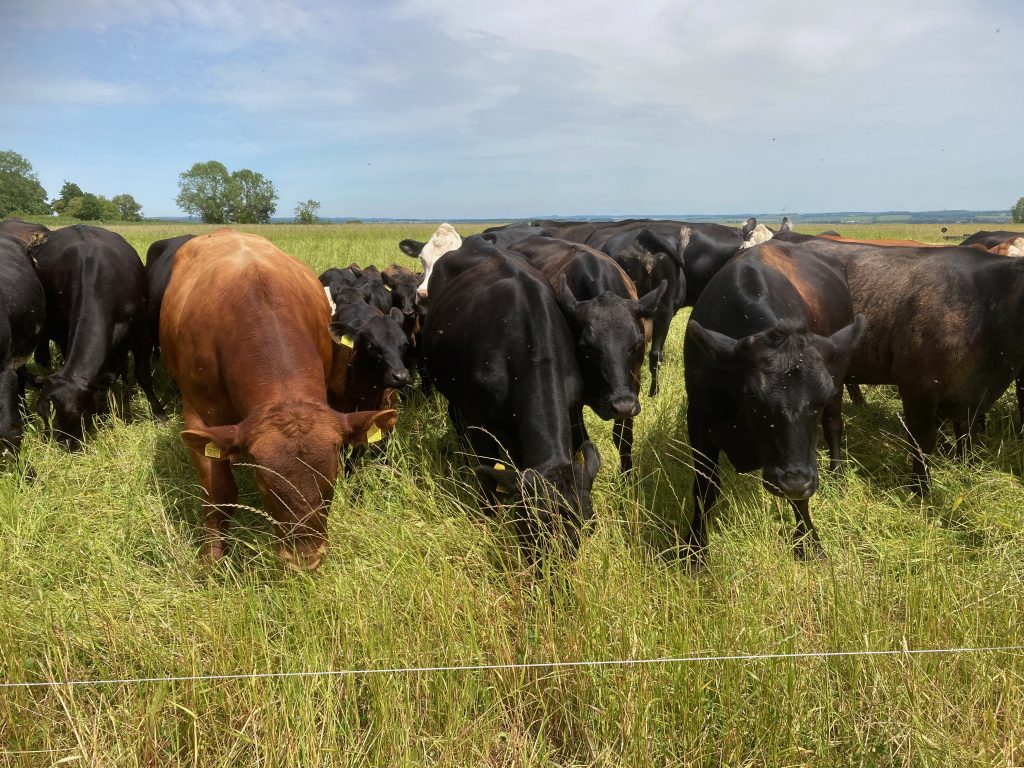
In his latest book, Regenesis, he attacks head-on pretty much every aspect of modern agriculture, the headline being that we should simply stop farming animals. He drew a substantial audience at Groundswell last week, and sparked a good deal of lively debate. Soil health is the focus of much of his attention, but then he moves onto animals. He loves attacking farmers, painting us all with the same brush, the people who, as society evolved, became the managers of the land, the keepers of animals, and the growers of crops to sustain the growing population, and according to George the wreckers of our natural resources, mostly by farming animals. There are others in the environmental movement, such as Allan Savory, who maintain that the best hope for halting catastrophic climate change lies with managing the tens of millions of hectares of grasslands around the world (which all too often are now deserts) with large numbers of grazing animals. He has proved this in his home country (Zimbabwe) by returning land that had become desert, back to grassy health, and hence a valuable carbon sink, by careful management of herds and flocks of animals, mimicking the previously numerous numbers of the wild animals that once roamed the great plains, moving ever onwards to find fresh grazing, and to keep ahead of predators. The process of grazing, trampling and manuring as they go stimulates pasture growth, and has been shown as essential to restore such lands to a green and fertile condition. We are trying to replicate this on a small scale by mob grazing our herbal leys here at home, aiming to improve the organic matter content of the soil, which in turn increases moisture and nutrient holding capacity, hopefully reducing the need for artificial fertiliser in the future.
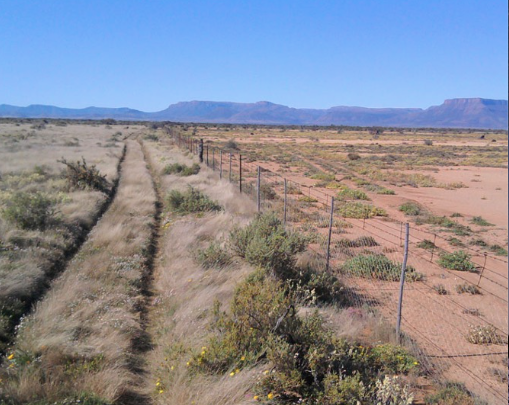
Last month I covered how we are now in a position where we cannot sustain the human race without fertiliser, having grown so huge by using it. Sadly George ignores this uncomfortable fact, and tells us that we should simply stop rearing and eating meat animals because they are so damaging to soil, environment and climate. Instead he declares that we must survive on food derived from genetically edited bacteria grown in huge vats, fuelled by water, carbon from the air, a ‘sprinkling’ of nutrients, plus a considerable amount of electricity.
It is sad too that he fails to acknowledge all the good things being done by so many farmers who are learning to produce food in a far more environmentally friendly fashion than just a few years ago.
There are clearly several issues to address here; how best to remove carbon from the atmosphere, how to feed the population without wrecking the planet, how to halt the decline in biodiversity and how to do all these at the same time. Very much in the public arena at the moment, we will no doubt return to the subject very soon.
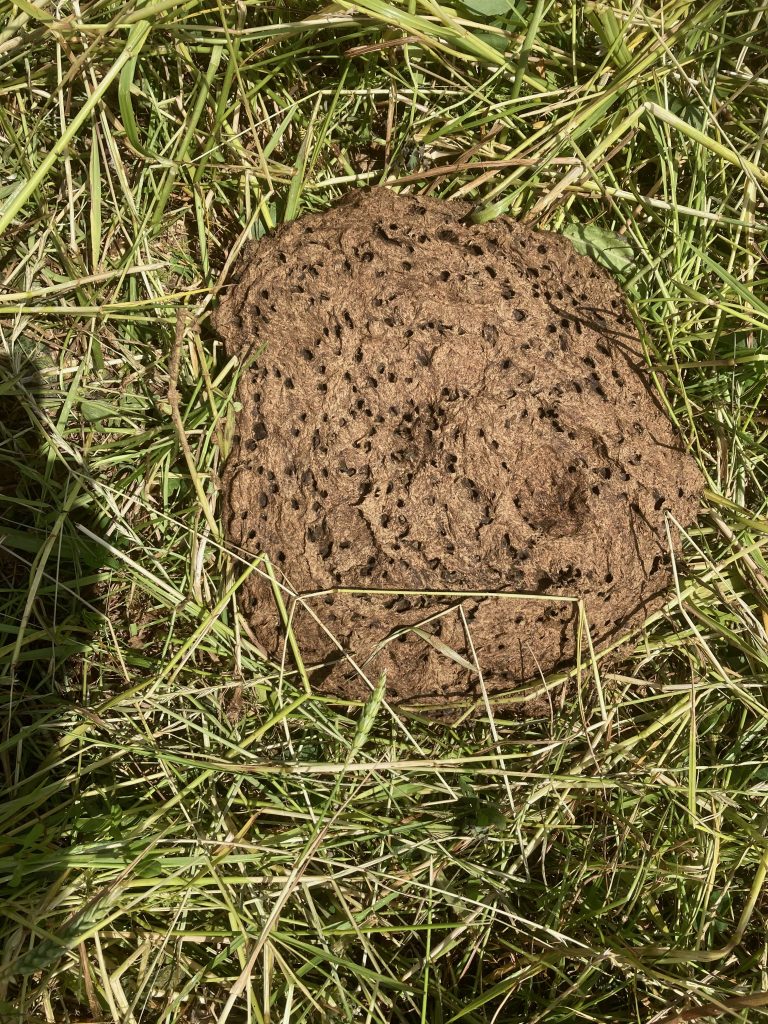
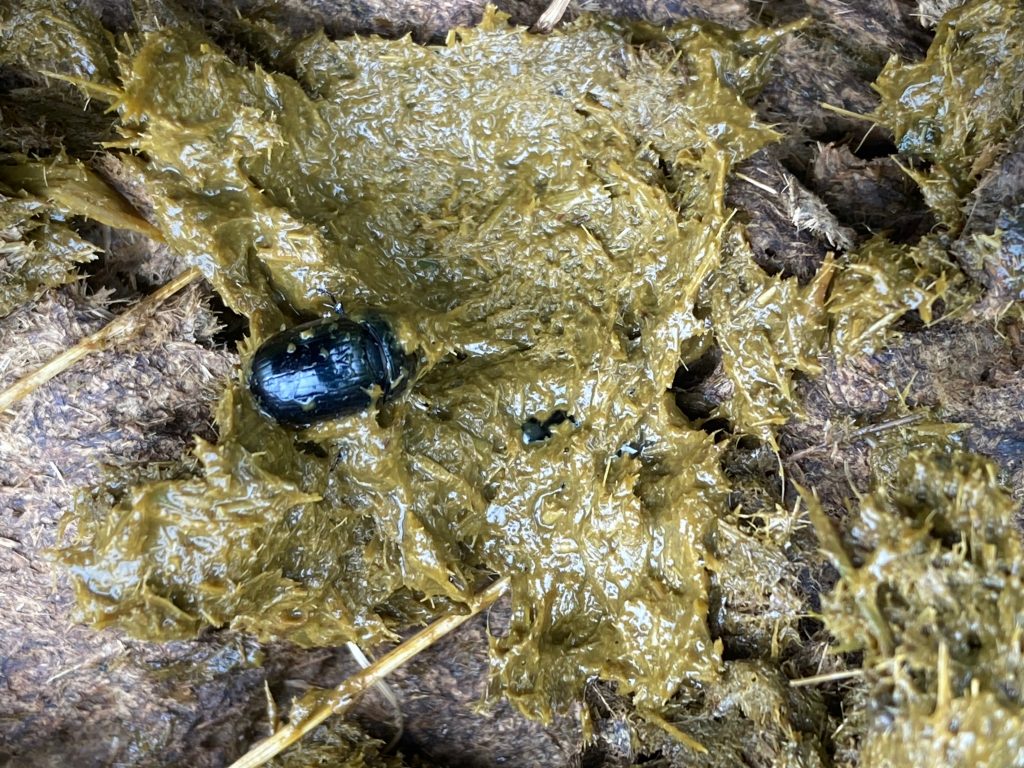
https://www.instagram.com/tv/CfRs1YIr0nM/?igshid=MDJmNzVkMjY%3D click for a short video
A dung beetle seminar was enjoyed by members of our cluster group recently, a vet from Shropshire came armed with a supply of rubber gloves to get us delving into the world of coprophages. There are dwellers and tunnellers and many others, we heard tales of what we can do to help them to help us.
A prickly visitor came a trotting around the garden a few days ago
https://www.instagram.com/tv/Ce_8xkML9F2/?igshid=YmMyMTA2M2Y=. click for a short video
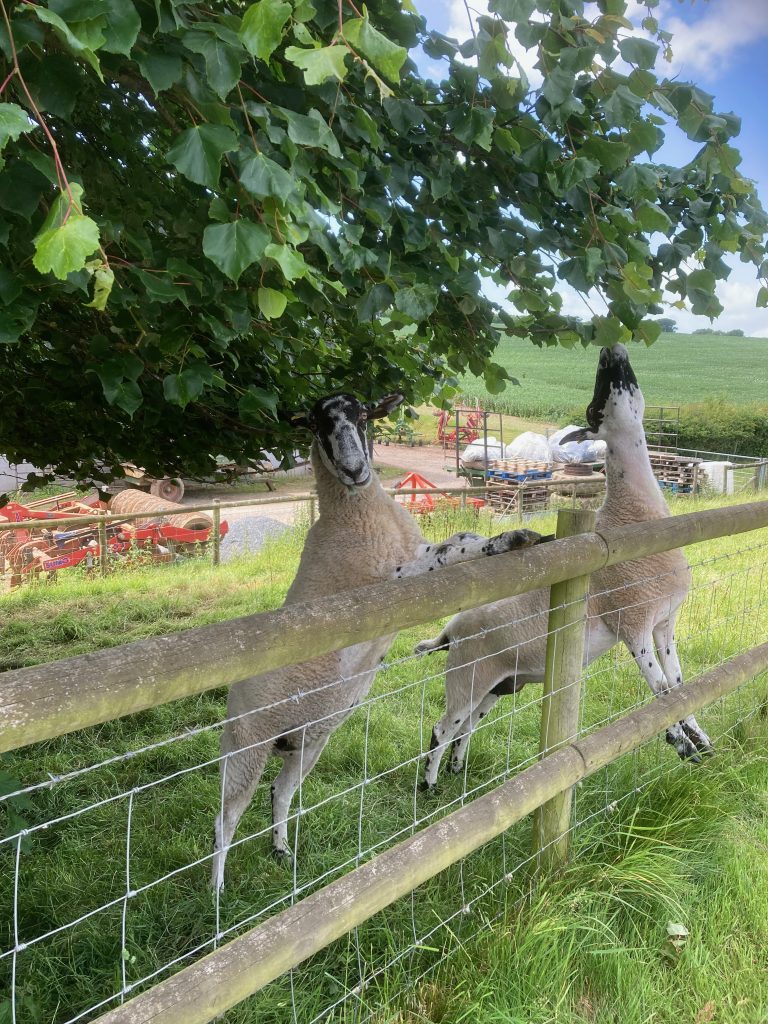
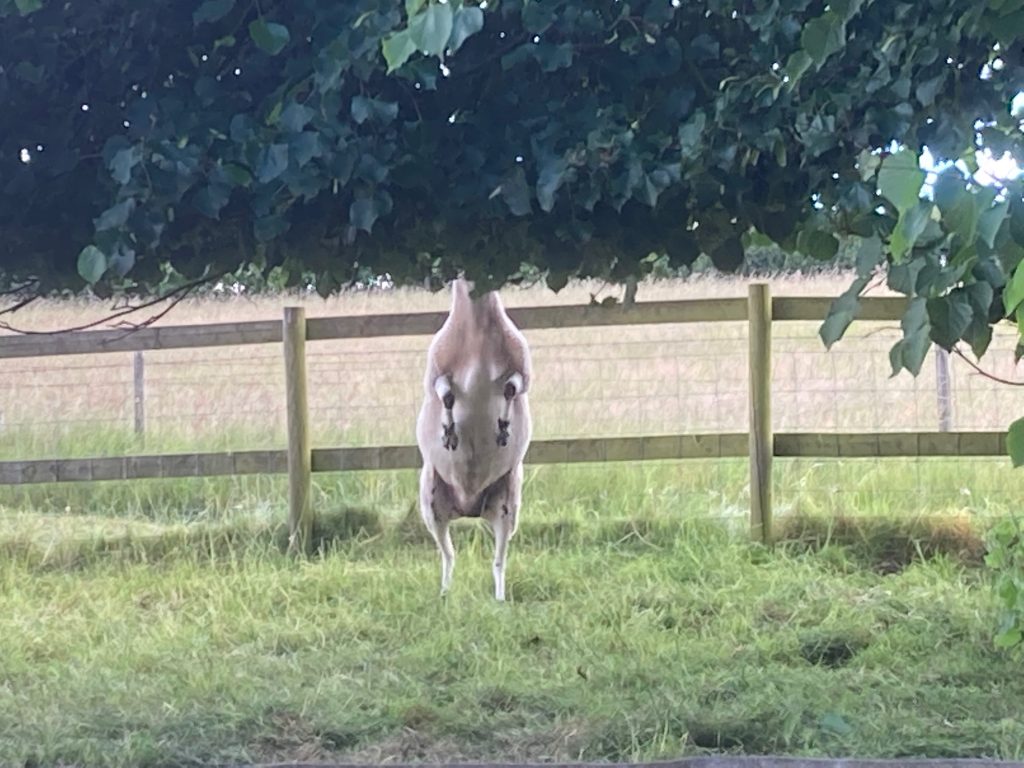
I grew up learning that Tiggers don’t climb trees, and was always pretty certain that sheep didn’t either, if they did they must be a goat. These young mules though, are doing their best to reach tasty lime leaves.
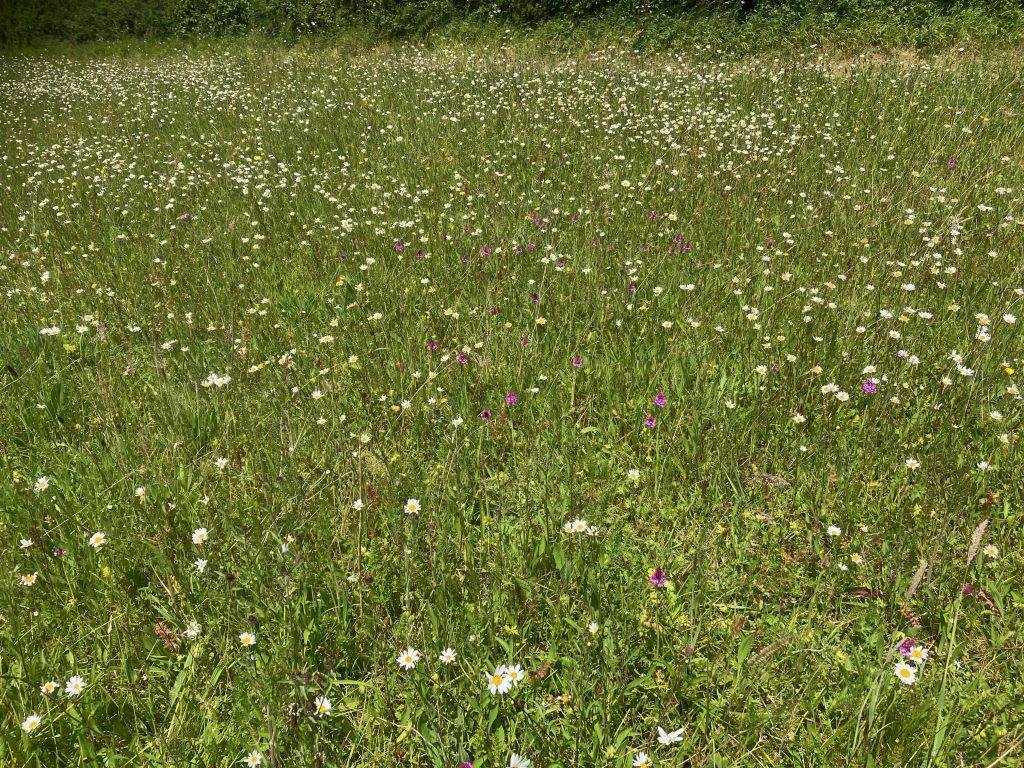
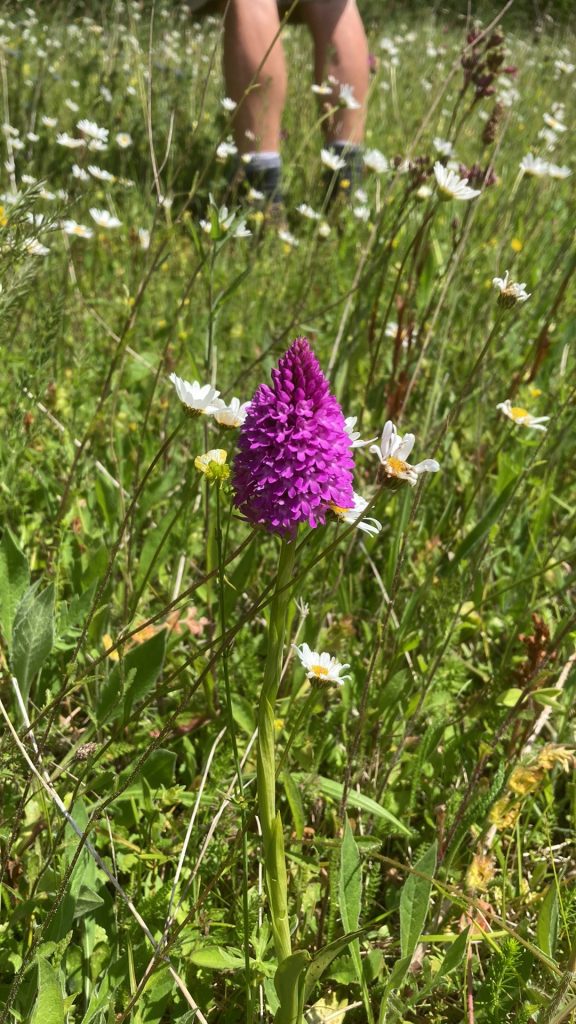
A selection of orchid species is appearing in places we’ve never seen them before, a clump of southern marsh and pyramid orchids have emerged in a stewardship corner that hasn’t seen an arable crop for the last 15 years. Can the seeds really lie dormant for this long, waiting for conditions suitable for re-emergence?

Are the NFU doing enough?
Jim
Good to see a hedgehog about again, the badgers have eaten all of ours.
Agree about Monbiot. He has the outlook of a revolutionary and consequently is a firm believer in the dictatorship of the vegetariat. Re. grazing livestock, another point he seems to persistently overlook is the importance of their dung as a resource for a number of invertebrates and other animals that depend on them.
A great read George. I which more people could see the work you are doing to farm with less inputs. Inspirational and impressive.